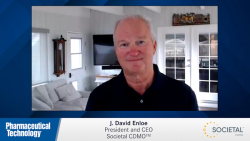
OR WAIT null SECS
- About Us
- Advertise
- Contact Us
- Editorial Info
- Editorial Advisory Board
- Do Not Sell My Personal Information
- Privacy Policy
- Terms and Conditions
© 2026 MJH Life Sciences™ , Pharmaceutical Technology - Pharma News and Development Insights. All rights reserved.
Sanofi Campaign Targets Counterfeit Medicines
Passengers travelling via Air France this December will see an in-cabin movie made by Sanofi to raise awareness about the dangers of counterfeit drugs.
Passengers travelling via Air France this December will see an in-cabin movie made by Sanofi to raise awareness about the dangers of counterfeit drugs.
According to Sanofi’s video, up to 10% of the world’s medicines can be counterfeit. In industrialised countries, counterfeit medicines are rare and many patients and consumers may not be fully aware of the dangers. In other locations, however, such as some countries in Africa, Asia, Latin America and in emerging markets, counterfeit medicines may comprise 20–30% of the market. Travellers are not always aware of the risk when venturing to another country.
You can watch Sanofi’s campaign videos here. They are straightforward and to the point, almost acting as a mini documentary or news report about the dangers of counterfeit medicines. In addition, the videos show how Sanofi is working to prevent counterfeit medicines. The company is also rolling out a passport, which provides information to travellers about how to protect themselves and how to spot suspicious medicines abroad.
Sanofi is not the first Big Pharma company seeking to educate patients about counterfeit medicines. In 2009, Pfizer launched a similar public campaign. Unlike Sanofi, however, Pfizer used a more heavy-hitting approach, including an advert shown in cinemas of a man coughing up a dead rat (some counterfeit medicines have been found to contain rat poison). The advert was designed to shock, but also elicited a large number of complaints, although the UK’s advertising watchdog later ruled that the advert had not breached any advertising standards. The advert was complemented by a website containing detailed information about the dangers of counterfeit medicine and buying medicines online.
Campaigns such as the above show how the role of the pharmaceutical industry is changing. Not only are companies still expected to research, develop and manufacture innovative medicines, there is also a growing expectation for companies to deliver even more value to patients, such as by raising health and disease awareness.
In the December issue of Pharmaceutical Technology, which will be available shortly on PharmTech.com, we take a close look at how manufacturers are seeking to better protect their supply chains against counterfeit medicines.


